Lesson 7 | Digging Deeper into Verbal Phrases, Part 1
Unmarked Phrases
Most types of phrases, both verbal and nonverbal, are named by the part of speech that begins the phrase. An unmarked phrase, however, is so called because of what doesn’t begin the phrase! When a phrase doesn’t begin with an infinitive, participle, conjunction, relative pronoun, a genitive, or a preposition, and when the phrase as a whole isn’t functioning as a substantive or in apposition to something in the preceding phrase, it belongs in the category of unmarked phrases.
All the unmarked subordinate phrases in the following passage of Scripture, Isaiah 40:7-8, are marked in bold.
The grass withers, the flower fades when the breath of the Lord blows on it; surely the people are grass. The grass withers, the flower fades, but the word of our God will stand forever.
The Phrasing Relationships cheat sheet contains a list of 27 possible relationships a subordinate phrase can have with its anchor phrase. On the bottom right-hand corner of every relationship definition is a circle or circles containing a letter/letters, with a key to the symbols at the bottom of the page.
There are six major relationships that an unmarked phrase can have with its anchor phrase, marked with the letter “U.” To help you grow in your familiarity with unmarked phrases and their uses, I’ve included a scriptural example of each relationship below. (This is not an exhaustive list, but representative of a majority of unmarked phrases in Scripture.)
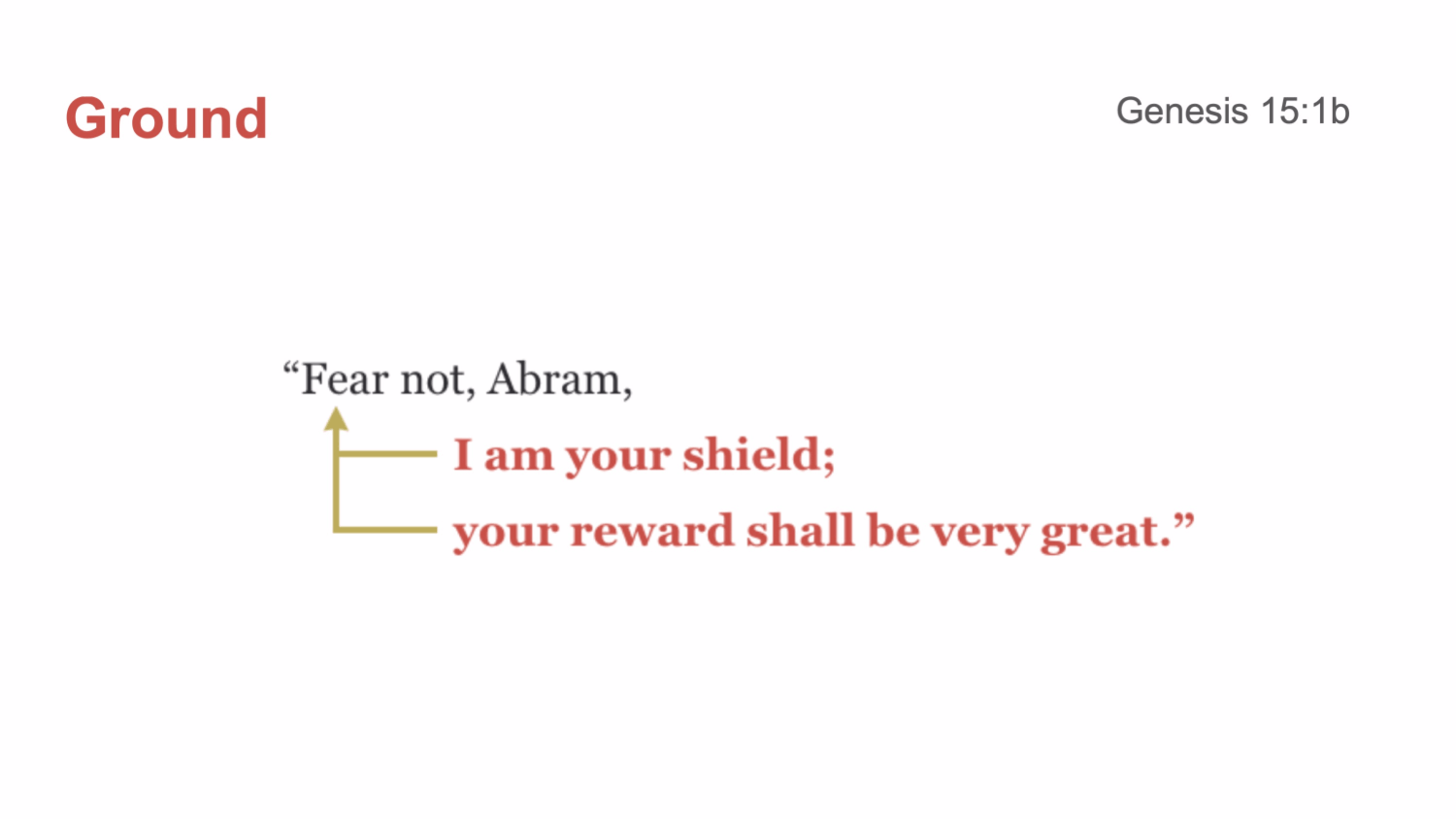
Here God is telling Abram not to be afraid because he is his shield, and because his reward will be very great.
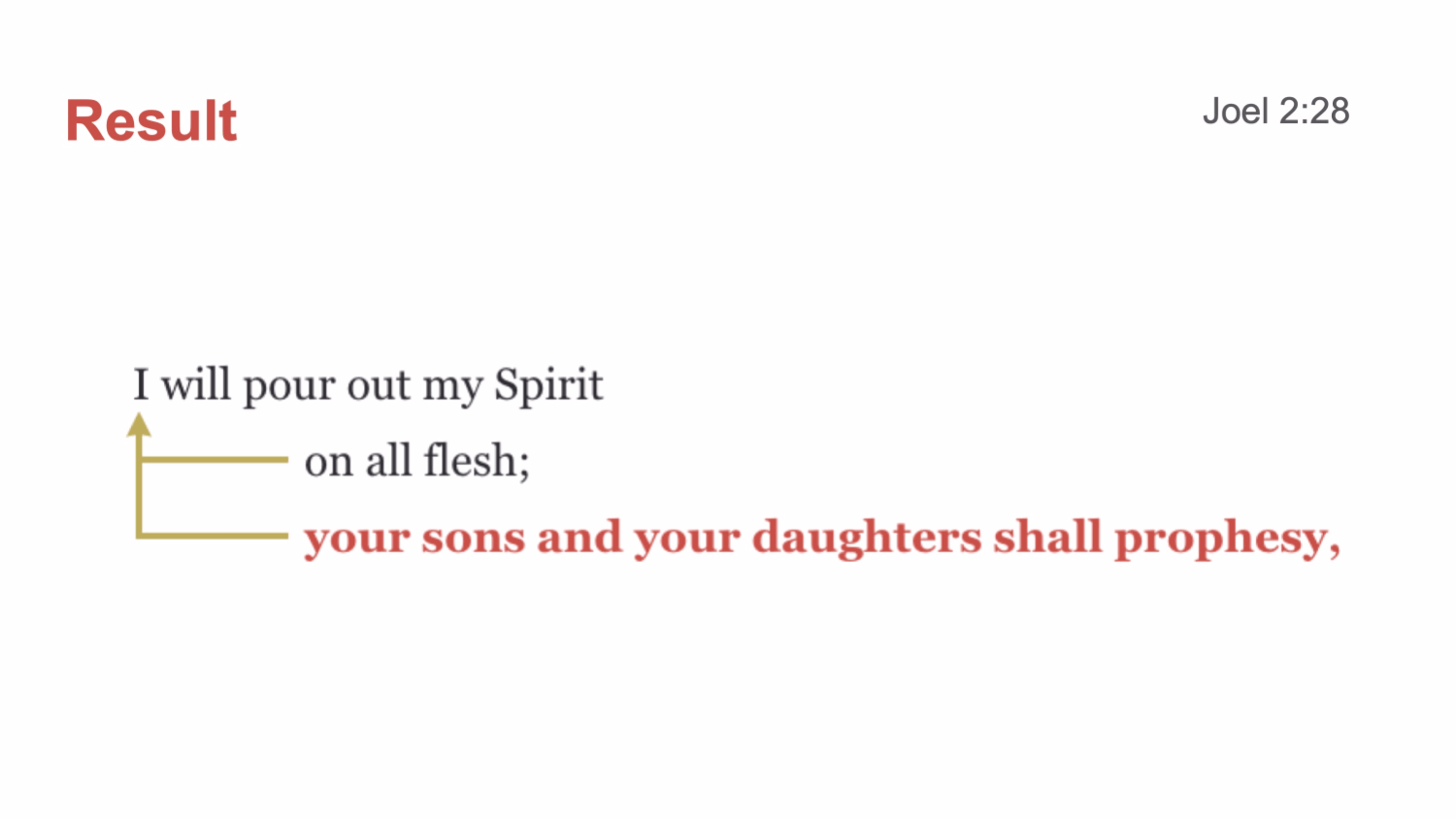
The result of God’s pouring out his Spirit on all flesh is that the sons and daughters of God’s people will prophesy.
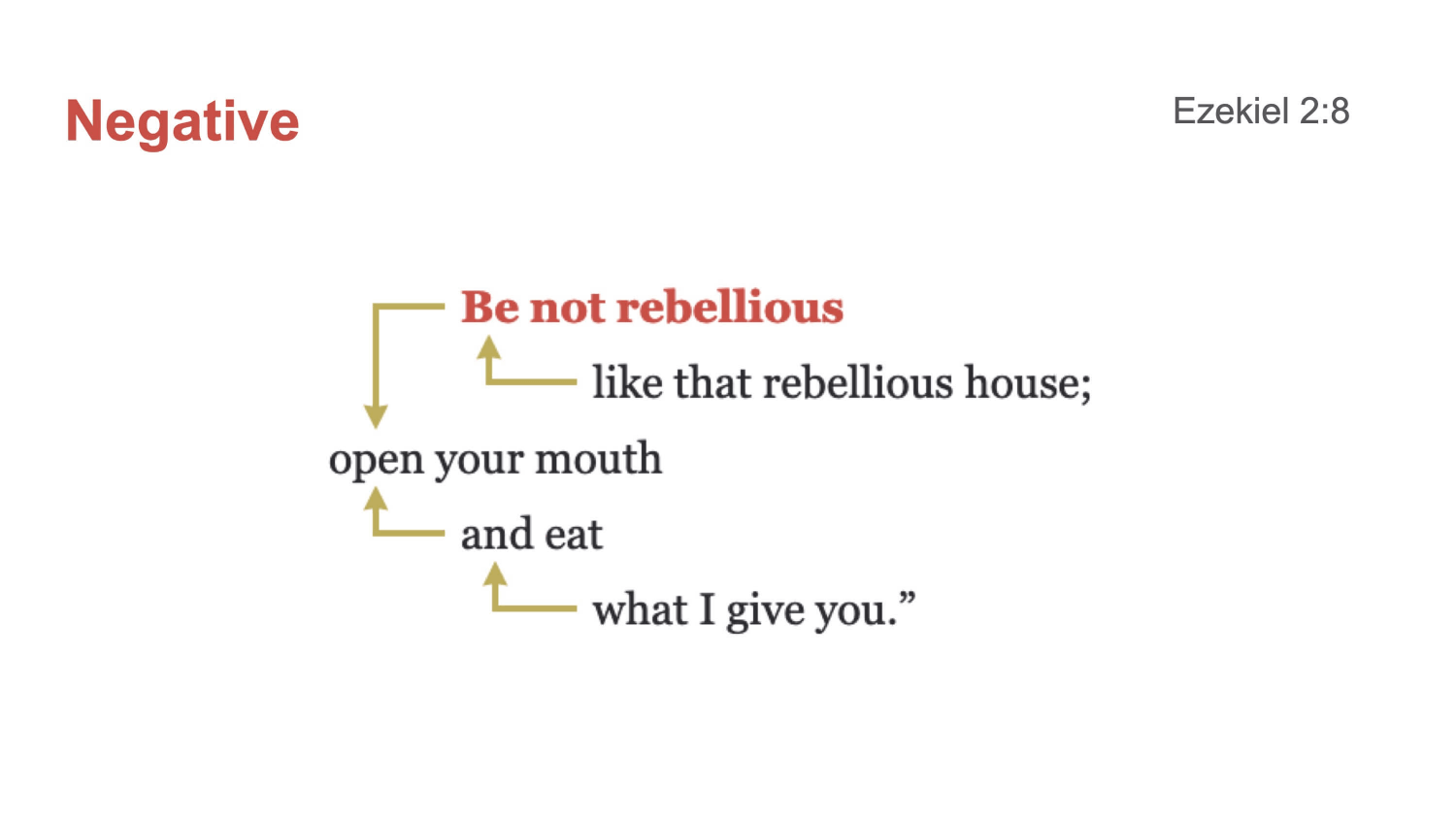
God enforces his command for Ezekiel to open his mouth by ordering him not to be rebellious.
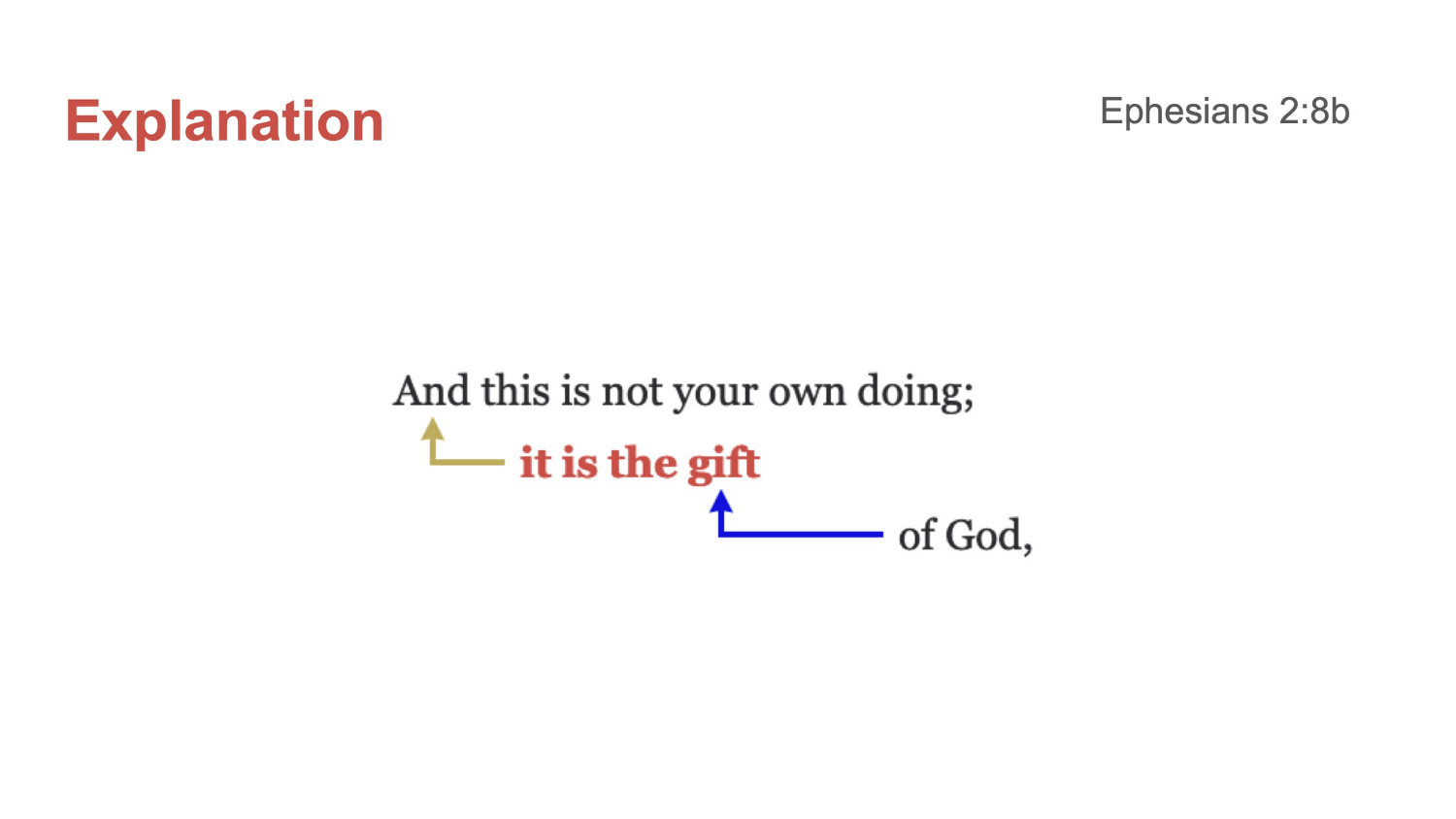
Paul clarifies what he means by saying that salvation is not the believer’s own doing; he means that it is God’s gift.
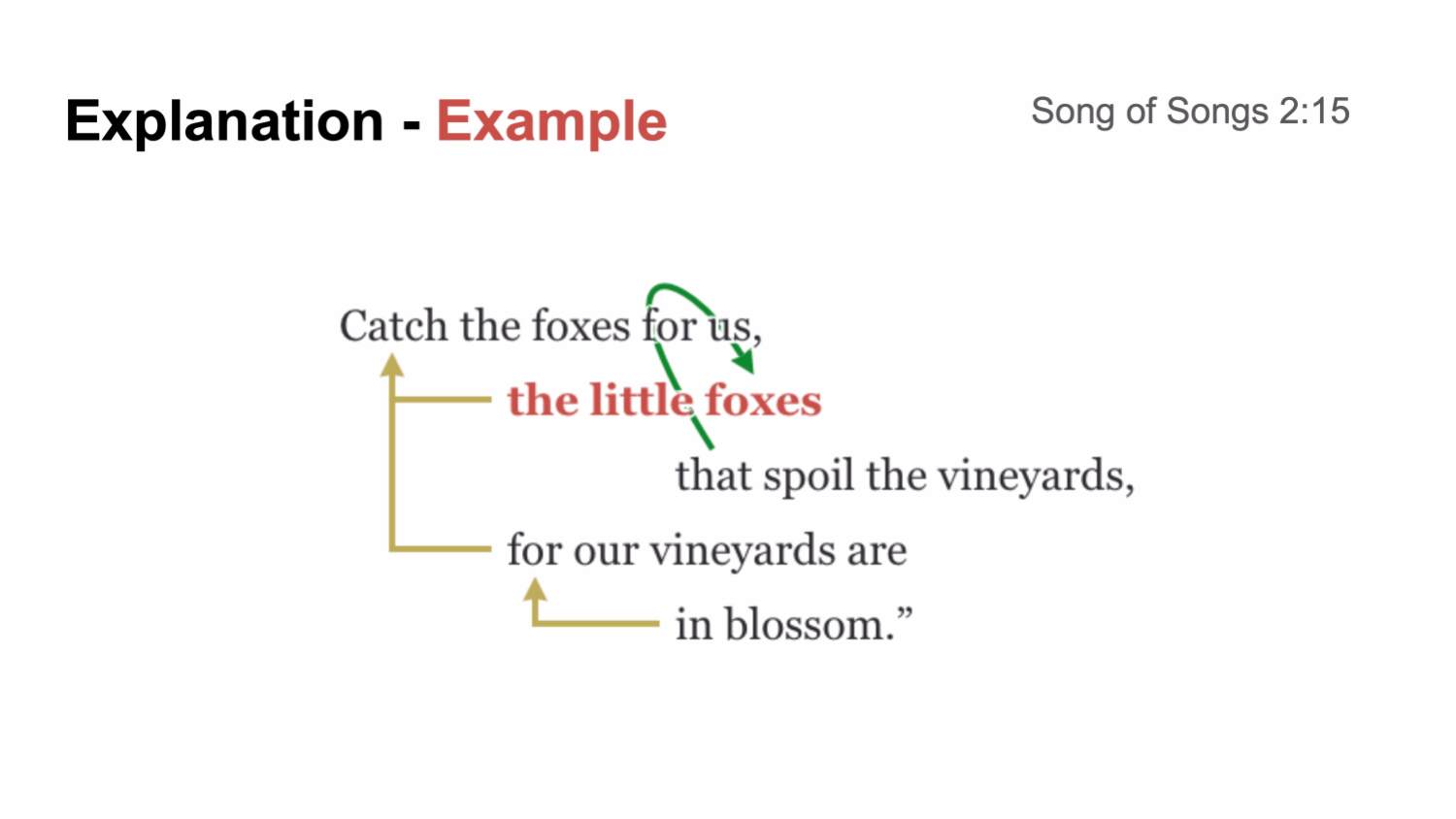
A specific example of the kind of foxes that the married couple in the Song are trying to catch are little foxes who spoil vineyards.
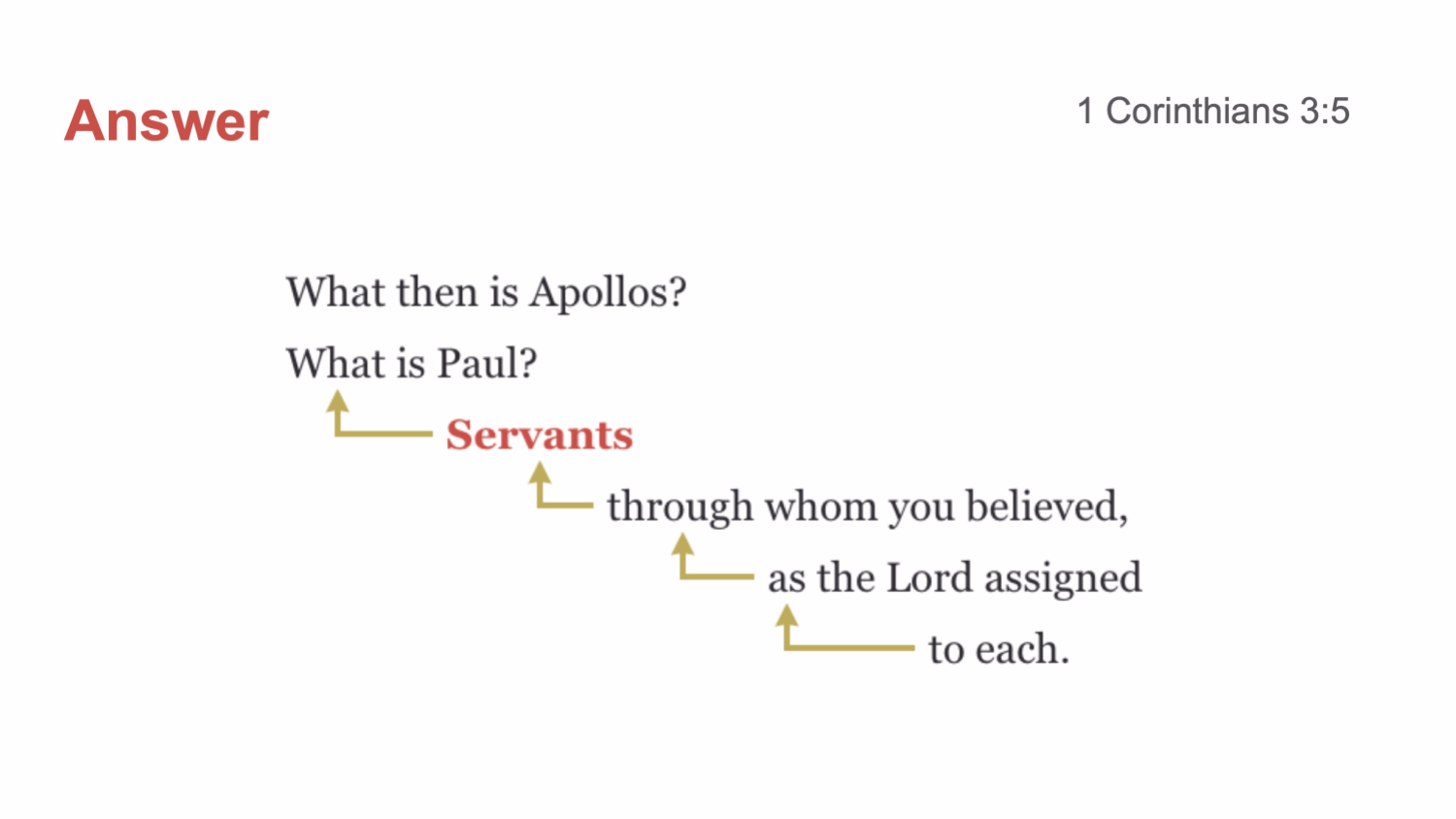
In the Bible, many statements given in answer to a question are unmarked phrases, such as this one.